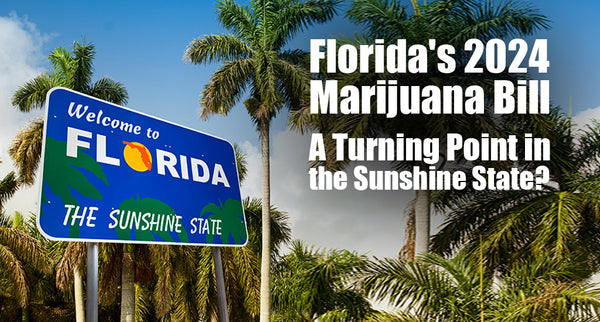
Historic Shift: DEA Considers Moving Marijuana to Schedule III Following HHS Recommendation
In recent developments, the Drug Enforcement Administration (DEA) has been actively considering a significant policy shift regarding marijuana. This comes in the wake of a recommendation from the Department of Health and Human Services (HHS) to reclassify marijuana from Schedule I to Schedule III under the Controlled Substances Act (CSA). This recommendation aligns with an increasing push from various sectors, including lawmakers and the public, for more progressive marijuana policies.
The DEA's Review Process
The DEA has acknowledged that it is currently reviewing marijuana's classification as a Schedule I drug. Schedule I drugs are considered to have no accepted medical use, a lack of accepted safety for use under medical supervision, and a high potential for abuse. The agency, asserting its final authority on rescheduling decisions, has not provided a definitive timeline or clear stance on its position regarding the reclassification or full descheduling of marijuana.
Public Opinion and Congressional Pressure
There's a growing disparity between public opinion and federal marijuana policies. Recent polls indicate that a significant majority of Americans now favor the legalization of marijuana. This public sentiment is echoed in the bipartisan calls from Congress for the DEA to reconsider its stance on marijuana. Lawmakers, such as Rep. Earl Blumenauer, co-chair of the Congressional Cannabis Caucus, have described the current scheduling of marijuana as "arcane and out-of-touch" and have urged the DEA to recognize the merits of legalization during their review.
HHS's Role and the Scientific Rationale
The HHS has played a crucial role in initiating the potential rescheduling of marijuana. Secretary Xavier Becerra stated that the agency has responded to President Biden's request to provide a scheduling recommendation for marijuana, emphasizing that a thorough scientific evaluation was completed and shared expeditiously. The recommendation to shift marijuana to Schedule III, which includes drugs with less potential for abuse and a moderate to low likelihood of physical or high psychological dependence, signifies a significant shift in the federal stance on marijuana.
Conclusion
The DEA's current review of marijuana's federal classification marks a pivotal moment in the long-standing debate over cannabis policy in the United States. While the agency maintains its final authority over the decision, the combination of HHS's scientific backing, mounting public support for legalization, and congressional pressure indicates a potential shift towards more progressive marijuana laws. The eventual decision by the DEA, whether it aligns with the HHS recommendation or not, will undoubtedly have far-reaching implications on the legal, social, and economic landscapes surrounding cannabis in the U.S.
Leave a comment
Comments will be approved before showing up.



